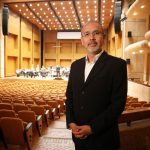With the purpose of reducing the risk of school dropout among vulnerable and elderly populations, the education sector has long implemented accelerated education models that prioritize fundamental competencies.s and reinforce the appropriation of basic knowledge to guarantee, thus, the leveling of students and the continuity of their training process.
This flexible learning solution arrived in the country in 1998. Since then, Corpoeducación adopted and implemented the model for primary school students. In this process, he identified that some schoolchildren were still too old to enter secondary and middle school, which is why he designed the ‘Thinking’ pedagogical model, which allows them to advance in the educational trajectory, guaranteeing fundamental learning.
This model is one of the few that includes secondary education. Recently, in alliance with Unicef, Corpoeducación took its accelerated training experience to El Salvador and Venezuela.
The learning guides prioritize basic skills – such as mathematics, language and English – to promote transition to the next grades and achieve academic leveling in a shorter time. In addition, they incorporate didactics based on approaches such as ‘Project-based learning’ and ‘Pedagogy of the question’, which promote a participatory pedagogical environment in which the student is the center of the training actions.
The pedagogical material includes guidelines on economic and financial education, as well as socio-occupational guidance, which support the formulation and development of the life project.
One of the fundamental axes of the model is teacher training. Teachers receive training on how to strengthen students’ social and emotional skills in the classroom. It is based on the premise that learning guides are the means and not the end; Therefore, training focuses on strengthening the capacity of educators to guide their pedagogical practice to the development of activities that take into account the students’ context.
These good practices are consolidated in the implementation of accelerated education models, where the school is transformed into a scenario of inclusion and integration with the purpose of meeting the needs of students and achieving their permanence in the educational system.



